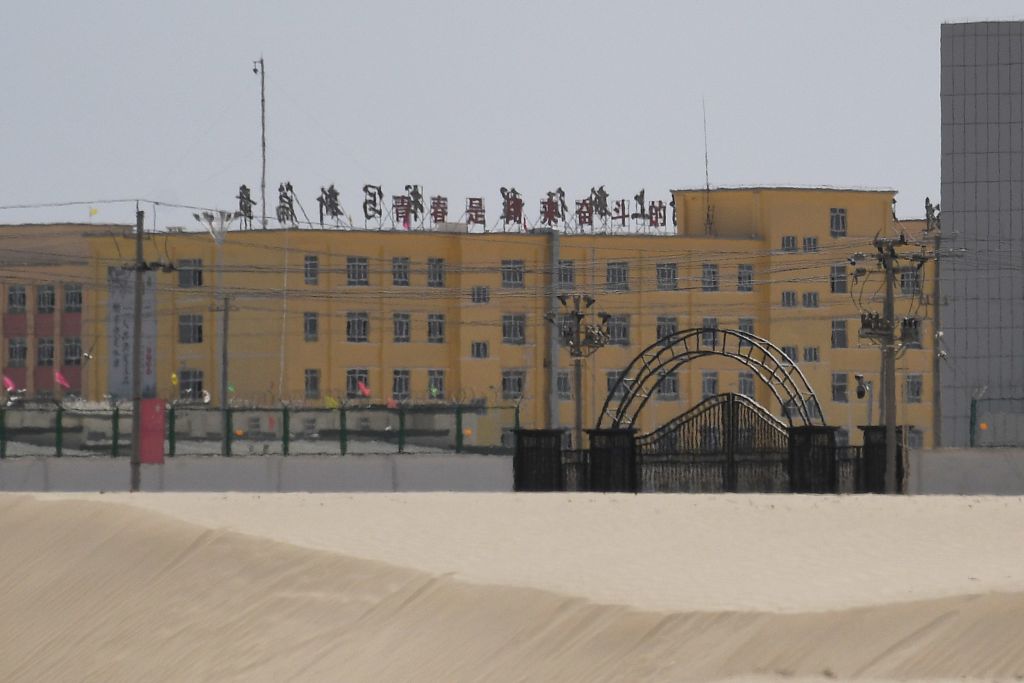It will take more than a Presidential address for America to relearn that when it comes to economic policy, we need to put markets and property first.
Woke Capital’s Modern Slaves

The politics of "diversity, equity, and inclusion" include plenty of room for brutality.
The social justice creed of globalized corporations can’t paper over the ugly truth. January bears special significance in the fight against slavery. On January 1, 1863, Abraham Lincoln issued the Emancipation Proclamation, declaring 3.1 million slaves residing within the rebel states to be henceforward free; ratification of the 13th Amendment officially ended the legal institution of slavery in America nearly two years later. Every year since 2010, presidential proclamations have dedicated January as National Slavery and Human Trafficking Prevention month with the goal of drawing attention to the continued existence of millions of slaves across the globe.
This year’s proclamation, however, came straight off the heels of efforts by executive branch officials and the House Democratic leadership to stall and water down the Uyghur Forced Labor Prevention Act, which bans the importation of goods made with slave labor in the Xinjiang region of China. Though the act eventually passed and was signed by the president, the bill languished for months in the House. It was not until Senator Marco Rubio brought national attention to the act through a high-profile attempt to insert the bill as an amendment to the Defense Authorization Act that House Democratic leadership reluctantly brought a version of the bill up for a floor vote.
Despite widely acknowledged evidence that state-imposed forced labor is an integral part of China’s efforts to control and eliminate its Uyghur minority population, a variety of excuses were made for efforts to stall the bill. Special Envoy John Kerry and Deputy Secretary of State Wendy Sherman, for instance, expressed concerns that it would undermine climate negotiations with China. They were also no doubt acutely aware that the production of solar panels and other goods necessary to advance the Left’s green agenda rely on raw materials sourced from the Uyghur region of China.
While supply chains for sources of “green” energy have long been supported by forced labor, another major reason for the reticence among some political leaders to advance widely supported bipartisan anti-slavery legislation is that such efforts are opposed by American and multinational mega-corporations. Even the New York Timesreported that major American companies, including Coca-Cola, Apple, and Nike, tried to weaken and delay the passage of the Forced Labor Prevention Act.
Self-interest and justice have always been natural enemies, and the reliance of mega-corporations on slave labor to improve their bottom line is nothing new. What is new is the growing number of corporate leaders who turn a blind eye to and even promote the worst kinds of human oppression, while at the same time cloaking themselves in the altruistic ideology of social justice. Portraying themselves as moral warriors on behalf of progress, woke corporatists have enthusiastically joined forces with cultural Marxists in the media, academia, and government who seek to destroy the freedom and opportunity that America has advanced by portraying the country as conceived in oppression and dedicated to racism.
Despite the popularity of conservative memes promising, “Get Woke, Go Broke,” giant corporations have opportunistic, self-interested reasons for publicly advancing the theology of the Wokerati. Thanks to decades of left-wing dominance over primary, secondary, and higher education, members of the Millennial generation and Gen Z are increasingly prone to woke messaging. Big business, consequently, faces the growing influence of social progressivism not only from their consumer base, but also from the workers they seek to hire. These activists, unlike most within the conservative consumer and employee base, are organized and steadfast in their willingness to slander and otherwise attack brands and organizations that either run afoul of their pieties or do not sufficiently engage in “corporate responsibility” by advancing progressive social causes.
So long as corporate leaders publicly capitulate to the Left—for example by boycotting states whose policies are deemed too conservative, by hosting employee training seminars such as “emancipation conversations” and “deconstructing white privilege,” or by embracing a host of diversity initiatives—they can continue to attract talented hires and otherwise engage in the ruthless and even unethical pursuit of profit with impunity from consumer activists. Corporate leaders are also no doubt aware that adopting the correct ideology makes them less likely to run afoul of woke government bureaucrats and more likely to secure regulatory partialism, which can eliminate or at least minimalize competition.
Unfortunately, corporate appeals to the pieties of “anti-racism” and anti-western colonialism mean nothing to the estimated 40 million victims of actual slavery in the world today—many of whose stolen lives and liberty at some point in the global supply chain directly facilitate western consumerism and corporate growth. Moreover, the cultural Marxism advanced by woke corporatists is not itself harmless virtue signaling. It directly contributes to the problem of modern slavery by threatening the principles and institutions most needed to combat it. While Progressive elites frequently renounce constitutional government and western systems of law and order as inherently racist, patriarchal, or otherwise oppressive, totalitarian regimes or those operating in a state of de facto lawlessness are the worst perpetrators of modern slavery. Securing freedom for real victims of the world’s most inhumane and violent forms of oppression depends on limited government, property rights, the rule of law, and effective, incorrupt law enforcement.
Woke corporate “anti-racists” have increasingly revealed themselves to be enemies of these foundations of our form of government and our way of life. Laws and policies rolling back their sweeping advances are crucial, but not enough. Without a culture of freedom and human dignity together, the institutions we need to preserve it will be swiftly swept away.
The American Mind presents a range of perspectives. Views are writers’ own and do not necessarily represent those of The Claremont Institute.
The American Mind is a publication of the Claremont Institute, a non-profit 501(c)(3) organization, dedicated to restoring the principles of the American Founding to their rightful, preeminent authority in our national life. Interested in supporting our work? Gifts to the Claremont Institute are tax-deductible.
Senator Marco Rubio speaks at National Defense University on the need for a ‘pro-American industrial policy’ to counter China.
Our biggest institutions are blocking us from pursuing a good American life.



